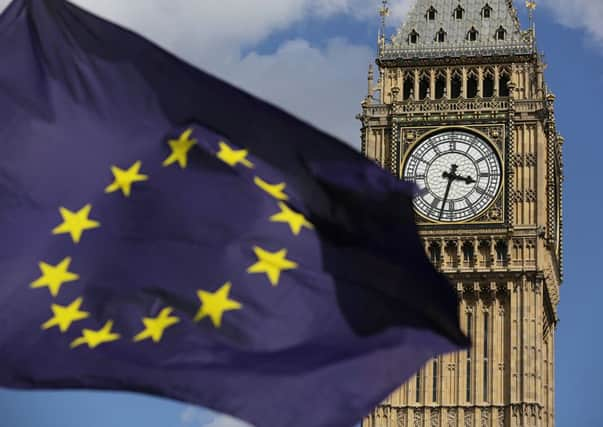Guy Lougher: Don't be spooked by worries over Brexit


We are now almost five weeks in from the Brexit referendum and it’s fair to say many companies are now either feeling Brexited-out or still working through the shock.
So, what should UK-plc’s priorities be and how can the business community influence Theresa May’s government as it prepares a negotiating strategy in the lead-up to triggering Article 50 and EU withdrawal.
Advertisement
Hide AdAdvertisement
Hide AdAs head of the Pinsent Masons’ Brexit Advisory Team, I have spent the last month shuttling up and down the UK, taking soundings from leaders of blue-chip businesses, financial institutions and politicians.
My advice to large and small business owners is quite simply to keep calm and not be spooked by the prevailing uncertainty. There is, however, a real opportunity to engage with government at all levels.
We are in uncharted territory but there is an opportunity for business to nudge government into pursuing strategies and objectives which will suit their respective markets. There will not be a better time for industry to reach out to the Government to try to influence its thinking and actions, both in relation to our future relationship with the EU and how we forge new, stronger trading bonds with non-EU countries.
There is much speculation about the UK signing lucrative free trade deals with a range of non-EU countries and it’s encouraging to hear of a positive approach being made by Australian PM Malcom Turnbull, while international trade secretary Liam Fox claims to be investigating up to a dozen potential alliances.
In some ways it’s too early for business to start preparing ahead for the implementation of any such trade deals; at this stage, we’ve no idea what would be in them, or even which countries would be signed up. But by lobbying the Government directly, and via professional and trade organisations, there is a window of opportunity to encourage the decision-makers to look at particular jurisdictions which may be beneficial to UK trade and to start negotiations with those countries.
In the financial services sector, I found that clients are determining the extent and value of their passporting status. There have been some surprising results; some businesses have more passports than they need.
Businesses passporting into other EU countries are thinking through what will happen post-Brexit and whether they need to shift some or all of their business to another country, the potential implications for employees and where they would operate from. There have been no drastic moves, such as opening up overseas operations or relocating employees yet.
Some clients are now starting to identify which EU nationals they have in the business and if they are key employees. Some businesses are encouraging key EU nationals to apply for UK citizenship, on the basis that there is not really a downside to doing it, and businesses are offering to pay costs and support them in the process.
Advertisement
Hide AdAdvertisement
Hide AdIn higher education, there is concern from some university-led research functions regarding the cessation of EU funding and what they can do to plug any gaps, so again I would urge them to reach out to government to make the case for equivalent or similar financial support.
It is encouraging that on the M&A side, deals continue to be done and there has been no significant drop-off. The recent $1billion acquisition by New York-listed AMC, for whom Pinsent Masons acted, of Odeon and UCI’s European cinemas, is a strong indicator that the UK is open for business. We have to hope good M&A activity levels continue and the weakening of sterling is favourable to overseas investors looking for bargains.
There are also interesting discussions taking place on how a post-Brexit UK could encourage foreign direct investment into the UK. There is a real opportunity if the UK can establish a targeted regulatory environment more favourable to business than the likely equivalent regulatory regime in the rest of the EU.
All in all, we’re still in ‘wait and see’ mode, until we know what the Government’s preferred negotiation position is. But astute lobbying and engagement can help to ensure a business-friendly environment which will encourage innovation and attract overseas investment.
• Guy Lougher is a partner and head of Pinsent Masons’ Brexit Advisory Team